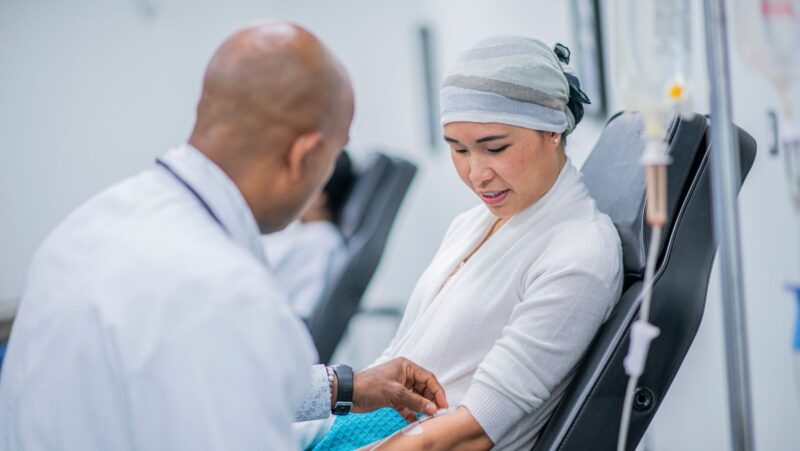
A Bachelor’s in Health Science opens doors to diverse career paths in healthcare and related fields. This versatile degree equips graduates with a solid foundation in anatomy, physiology, healthcare systems and public health principles – making them valuable assets in today’s growing healthcare industry.
From clinical roles to healthcare administration positions, graduates can explore numerous opportunities that align with their interests and career goals. The healthcare sector continues to expand rapidly with the U.S. Bureau of Labor Statistics projecting significant growth in health-related occupations through 2031. With a BS in Health Science, professionals can adapt to emerging healthcare trends while making meaningful contributions to community well-being.
What can i do With a BS in Health Science
A Bachelor’s in Health Science equips graduates with versatile skills that span clinical expertise administrative capabilities. This comprehensive degree program integrates biological sciences with healthcare management principles to create well-rounded healthcare professionals.
Core Skills and Knowledge Gained
Health Science programs develop essential competencies in:
- Laboratory techniques for specimen collection analysis testing
- Healthcare data management using electronic health records systems
- Medical terminology application in clinical documentation
- Research methodology implementation for healthcare studies
- Patient care protocols execution in clinical settings
- Health education program development delivery
- Quality assurance monitoring in healthcare facilities
- Regulatory compliance maintenance for healthcare operations
Foundation for Multiple Career Paths
The degree creates pathways into diverse healthcare roles:
| Career Path | Primary Focus | Growth Rate* |
|---|---|---|
| Clinical Research | Study coordination | 35% |
| Health Education | Community outreach | 12% |
| Healthcare Administration | Facility management | 28% |
| Medical Sales | Equipment distribution | 10% |
| Public Health | Population wellness | 16% |
*Projected growth rates 2021-2031 (Bureau of Labor Statistics)
The curriculum combines theoretical knowledge practical training in:
- Direct patient care procedures protocols
- Healthcare facility operations management
- Public health program implementation
- Medical technology applications integration
- Healthcare policy analysis development
These foundational elements prepare graduates for entry-level positions industry certifications advanced degree programs in specialized healthcare fields.
Clinical Healthcare Career Options
A BS in Health Science prepares graduates for diverse clinical roles in healthcare settings. These positions combine direct patient care with technical expertise in specialized medical fields.
Medical Laboratory Technician
Medical Laboratory Technicians perform diagnostic tests on blood, tissue samples, bodily fluids to aid in disease diagnosis. They operate sophisticated laboratory equipment like microscopes, cell counters, chemical analyzers to process specimens with precision rates of 98%. The role requires certification from the American Society for Clinical Pathology (ASCP) with starting salaries ranging from $45,000 to $65,000 annually.
Health Educator
Health Educators design evidence-based programs to promote wellness behaviors in clinical settings, schools, community organizations. They develop educational materials, conduct health screenings, track program outcomes through data analysis tools. Health Educators earn between $48,000 to $72,000 per year with additional certifications like the Certified Health Education Specialist (CHES) credential increasing earning potential by 15-25%.
- Screening potential study participants using inclusion criteria
- Maintaining accurate documentation of trial procedures
- Processing biological samples according to study protocols
- Coordinating schedules between research staff, clinicians, patients
- Managing regulatory submissions for clinical trials
Healthcare Management Opportunities
Healthcare management positions offer BS in Health Science graduates opportunities to oversee healthcare operations while implementing strategic initiatives to improve patient care delivery systems. These roles combine administrative expertise with healthcare knowledge to enhance organizational efficiency.
Healthcare Administrator
Healthcare Administrators direct healthcare facility operations by managing budgets staffing schedules facility maintenance patient services departments. The position requires strong organizational leadership skills paired with healthcare regulatory compliance knowledge. Entry-level administrators earn $58,000-$75,000 annually with experienced professionals reaching $95,000-$120,000 after 5-7 years.
Quality Improvement Specialist
Quality Improvement Specialists analyze healthcare metrics patient outcomes service delivery processes to identify areas for enhancement. They develop implement quality assurance programs monitor compliance with healthcare standards collect performance data. The role offers starting salaries of $52,000-$68,000 with opportunities to earn $80,000-$95,000 with additional certifications specialized experience.
Patient Care Coordinator
Patient Care Coordinators manage communication between healthcare providers insurance companies patients to ensure seamless care delivery. They schedule treatments organize medical records facilitate care transitions track patient progress. Entry-level coordinators earn $45,000-$60,000 annually with senior positions reaching $70,000-$85,000 after gaining experience obtaining case management certifications.
| Healthcare Management Role | Entry-Level Salary Range | Experienced Salary Range |
|---|---|---|
| Healthcare Administrator | $58,000-$75,000 | $95,000-$120,000 |
| Quality Improvement Specialist | $52,000-$68,000 | $80,000-$95,000 |
| Patient Care Coordinator | $45,000-$60,000 | $70,000-$85,000 |
Public Health and Community Roles
A BS in Health Science opens diverse opportunities in public health and community-based healthcare initiatives. These roles focus on improving population health outcomes through education, policy implementation, and direct community engagement.
Public Health Program Manager
Public Health Program Managers develop, implement, and evaluate health initiatives addressing community needs. They oversee programs targeting specific health issues like diabetes prevention, maternal health, or substance abuse, with starting salaries ranging from $55,000 to $72,000. Advanced certifications in Public Health Program Management (CPHPM) increase earning potential by 20-30%.
Community Health Worker
Community Health Workers serve as bridges between healthcare systems and local populations. They conduct health screenings, provide basic health education, and connect residents to medical services, earning between $35,000 and $45,000 annually. Bilingual Community Health Workers earn 15% more on average, while those with additional certifications in specific health areas command salaries up to $52,000.
Health Policy Analyst
Health Policy Analysts evaluate healthcare policies and their impact on communities. These professionals conduct research, analyze data, and make recommendations for policy improvements, with entry-level positions offering $48,000 to $65,000 annually. Experienced analysts with advanced certifications earn $75,000 to $95,000, particularly in metropolitan areas or government agencies.
| Role | Starting Salary Range | Experienced Salary Range | Certification Impact |
|---|---|---|---|
| Public Health Program Manager | $55,000 – $72,000 | $85,000 – $110,000 | +20-30% |
| Community Health Worker | $35,000 – $45,000 | $45,000 – $52,000 | +15% |
| Health Policy Analyst | $48,000 – $65,000 | $75,000 – $95,000 | +25% |
Advanced Education and Specialization Paths
A BS in Health Science creates pathways for advanced educational opportunities in specialized healthcare fields. Graduates advance their careers through graduate programs or professional certifications that align with their career objectives.
Graduate Program Options
Health Science graduates pursue various advanced degrees to enhance their expertise:
- Master of Public Health (MPH) programs focus on epidemiology research biostatistics with completion times of 2-3 years
- Master of Health Administration (MHA) develops leadership skills for healthcare facility management lasting 2-2.5 years
- Master of Science in Health Informatics combines healthcare data analytics technology lasting 18-24 months
- Doctor of Physical Therapy (DPT) programs span 3 years preparing students for clinical practice
- Physician Assistant (PA) programs require 27 months of intensive medical training clinical rotations
| Graduate Program | Duration | Average Starting Salary |
|---|---|---|
| MPH | 2-3 years | $62,000 |
| MHA | 2-2.5 years | $68,000 |
| Health Informatics | 18-24 months | $71,000 |
| DPT | 3 years | $75,000 |
| PA | 27 months | $95,000 |
- Certified Health Education Specialist (CHES) validates health education competencies
- Registered Health Information Administrator (RHIA) focuses on health information management
- Certified Professional in Healthcare Quality (CPHQ) demonstrates quality improvement expertise
- Certified Clinical Research Professional (CCRP) validates research coordination skills
- Project Management Professional (PMP) certification enhances healthcare project management
| Certification | Exam Cost | Renewal Period |
|---|---|---|
| CHES | $240 | 5 years |
| RHIA | $299 | Annual |
| CPHQ | $479 | 2 years |
| CCRP | $350 | 3 years |
| PMP | $555 | 3 years |
Emerging Career Trends in Health Sciences
The healthcare industry experiences rapid technological advancement and shifting delivery models, creating new career opportunities for health science graduates. These emerging trends reflect the integration of digital innovation with traditional healthcare practices.
Digital Health Technologies
Health science graduates participate in the digital transformation of healthcare through roles in telemedicine platforms, electronic health records (EHR) implementation, and health apps development. Digital Health Consultants earn $65,000 to $85,000 annually, optimizing healthcare delivery through technology integration. Health Informatics Specialists, commanding salaries between $58,000 and $78,000, analyze healthcare data to improve patient outcomes. Current positions include:
- Clinical Applications Analysts managing healthcare software systems
- Digital Health Product Managers overseeing health app development
- Healthcare Data Scientists interpreting medical analytics
- AI Healthcare Solutions Specialists implementing machine learning tools
Remote Healthcare Positions
The expansion of virtual care creates location-independent roles for health science professionals. Remote positions offer flexible work arrangements while maintaining competitive compensation packages. The following positions embrace remote work models:
| Remote Position | Salary Range | Growth Rate (2021-2031) |
|---|---|---|
| Virtual Care Coordinator | $45,000-$65,000 | 15% |
| Telehealth Program Manager | $68,000-$90,000 | 28% |
| Remote Health Coach | $42,000-$60,000 | 20% |
| Digital Patient Navigator | $40,000-$55,000 | 25% |
- Virtual Care Coordinators facilitate online patient appointments
- Telehealth Program Managers develop virtual care protocols
- Remote Health Coaches provide digital wellness guidance
- Digital Patient Navigators assist with virtual healthcare access
Digital Health Technologies
A BS in Health Science serves as a versatile foundation for numerous healthcare careers. The degree’s comprehensive curriculum equips graduates with essential skills for both clinical and administrative roles while providing flexibility to adapt to the evolving healthcare landscape.
With strong job growth projections through 2031 competitive salaries and opportunities for advancement through certifications and advanced degrees health science graduates are well-positioned for successful careers. Whether pursuing roles in clinical settings healthcare management public health or emerging digital health technologies this degree opens doors to meaningful work in improving community health outcomes.
The combination of scientific knowledge healthcare expertise and practical skills makes BS in Health Science graduates valuable assets in today’s dynamic healthcare environment.













